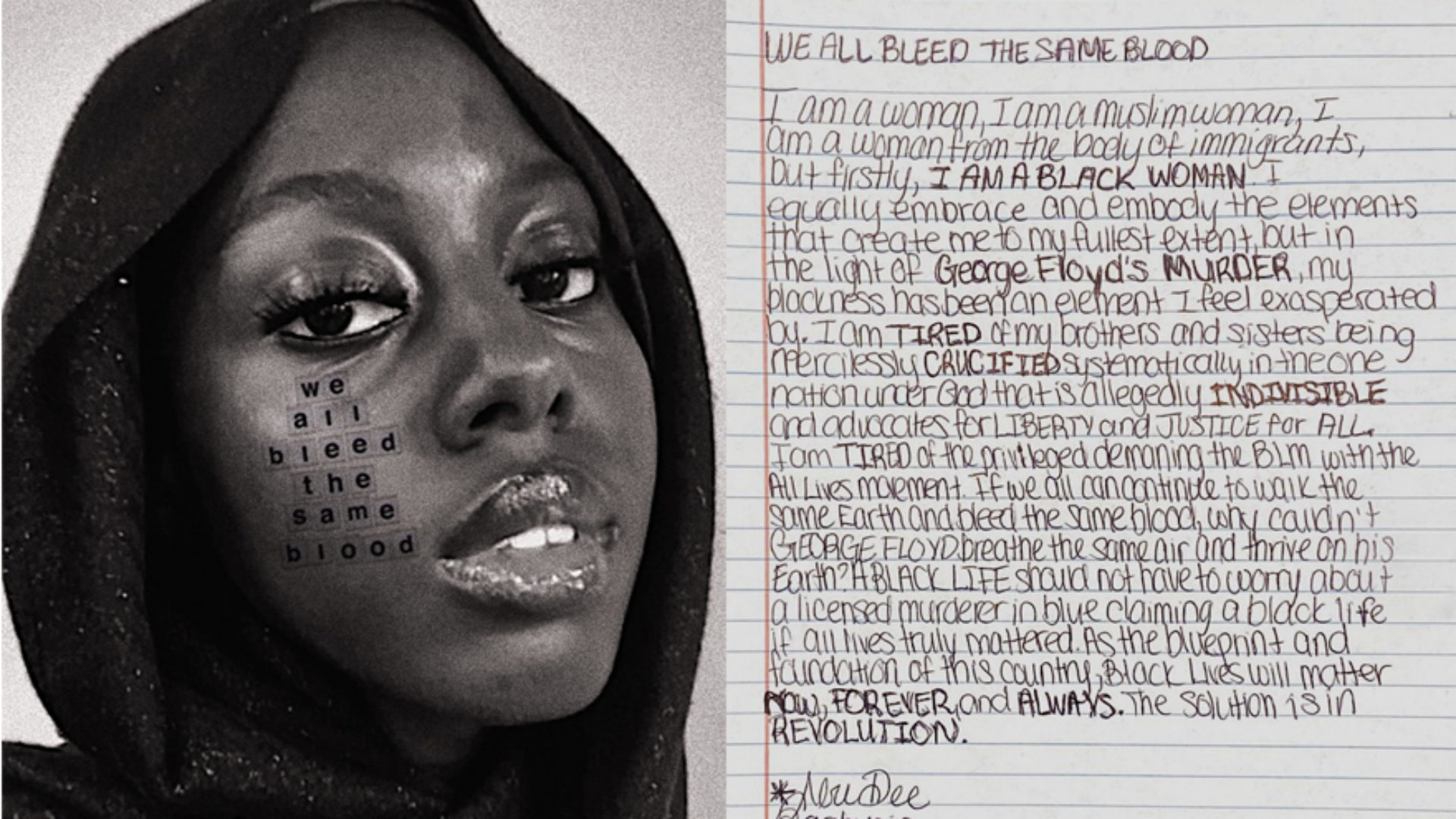
New York based photographer Peter DeVito is invested in amplifying Black voices.
DeVito, a Fashion Institute of Technology graduate, has always made it a point to work with a diverse crew of models. But after the deaths of Breonna Taylor, Ahmaud Arbery and George Floyd, DeVito wanted to not only assure that he was not only working with Black people, but take a back seat and let them speak on their experiences as well. So he began his Black Lives Matter Portrait Series, which is conducted completely via FaceTime. He has captured over 40 images so far.
“I ask them what message they want to send to the world regarding [the Black Lives Matter movement,] or racism in general, and put that message on their faces with my letter stickers digitally,” DeVito said in an email. “The model then handwrites a paragraph elaborating on their message..[S]ome touch upon why they think society has gotten to the point we are at and what they think the solution is.”
DeVito shared 10 photos from the series with GU. Read the models’ moving statements on race, inequality and the future, below.
Abou

“We all bleed the same blood. I am a woman, I am a Muslim woman, I am a woman from the bodies of immigrants, but firstly, I am a Black woman. I equally embrace and embody the elements that created me to the fullest extent, but in the light of George Floyd’s murder, my Blackness has been an element I feel exasperated by. I am tired of my brothers and sisters [being] mercilessly crucified systematically…I am tired of the privileged demeaning BLM with the All Lives Matter movement.
If we can all continue to walk the same Earth and bleed the same blood, why couldn’t George Floyd breathe the same air and thrive on his Earth? A Black [person] should not have to worry about a licensed murderer in blue claiming a black life if all live truly mattered. As the blueprint and foundation of this country, Black Lives will matter now, forever, and always. The solution is in revolution.” —Abou
Aliyah
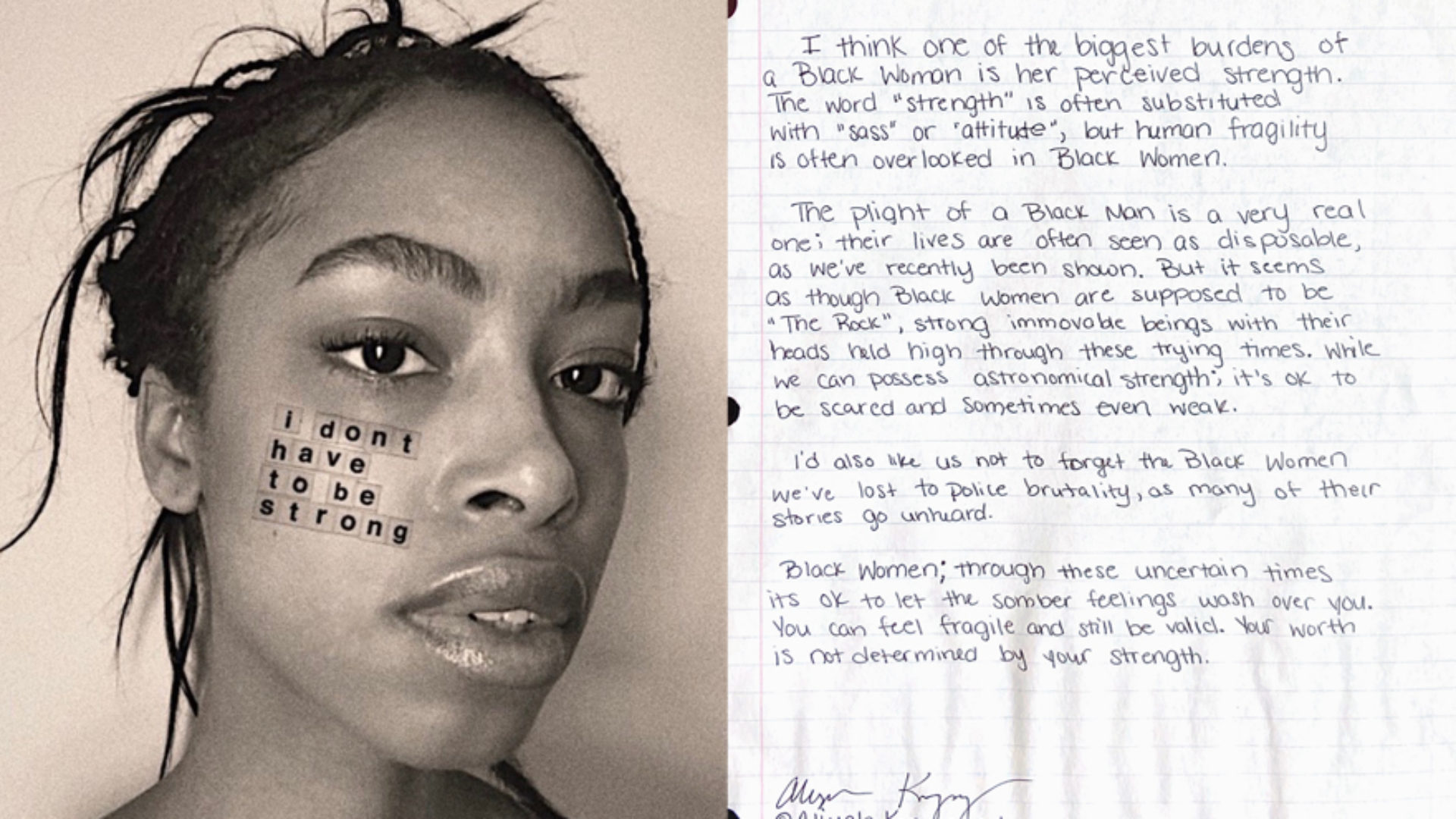
“I think one of the biggest burdens of a Black woman is her perceived strength. The word ‘strength’ is often substituted with ‘sass’ or ‘attitude,’ but human fragility is often overlooked in Black women. The plight of a Black man is a very real one—their lives are often seen as disposable, as we’ve recently been shown. But it seems as though Black women are supposed to be “the rock,” strong immovable beings with their heads held high through these trying times. While we can possess astronomical strength, it’s okay to be scared and even weak.
I’d also like us not to forget the Black women we’ve lost to police brutality, as many of their stories go unheard. Black women, through these uncertain times it’s okay to let the somber feelings wash over you. You can feel fragile and still be valid. Your worth is not determined by your strength.” —Aliyah
Amira
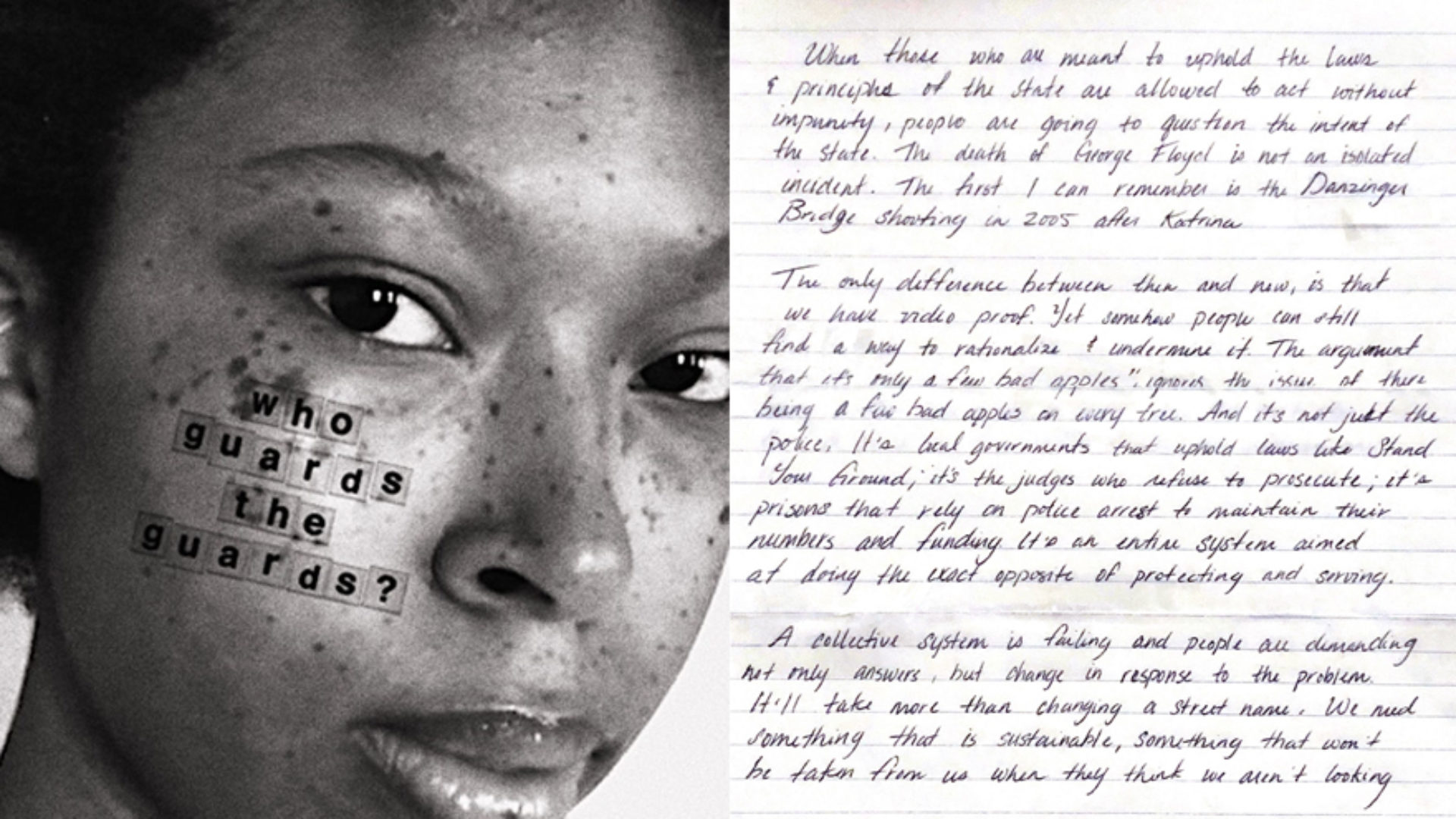
“When those who are meant to uphold the laws and principles of the state are allowed to act without impunity, people are going to question the intent of the state.
The death of George Floyd is not an isolated incident. The first I can remember is the Danzinger Bridge shooting in 2005 after [Hurricane] Katrina. The only difference between then and now is that we have video proof. Yet somehow people can still find a way to rationalize and undermine it. The argument that it’s only a few bad apples ignores the issue of there being a few bad apples on every tree.
And it’s not just the police—it’s local governments that uphold laws like “Stand Your Ground,” it’s the judges who refuse to prosecute; it’s prisons that rely on police arrests to maintain their [inmate] numbers and funding; it’s an entire system aimed at doing the exact opposite of protecting and serving. A collective system is failing and people are demanding not only answers, but a change in response to the problem. It’ll take more than changing a street name. We need something that is sustainable, something that won’t be taken from us when they think we aren’t looking.” —Amira
Dimitry
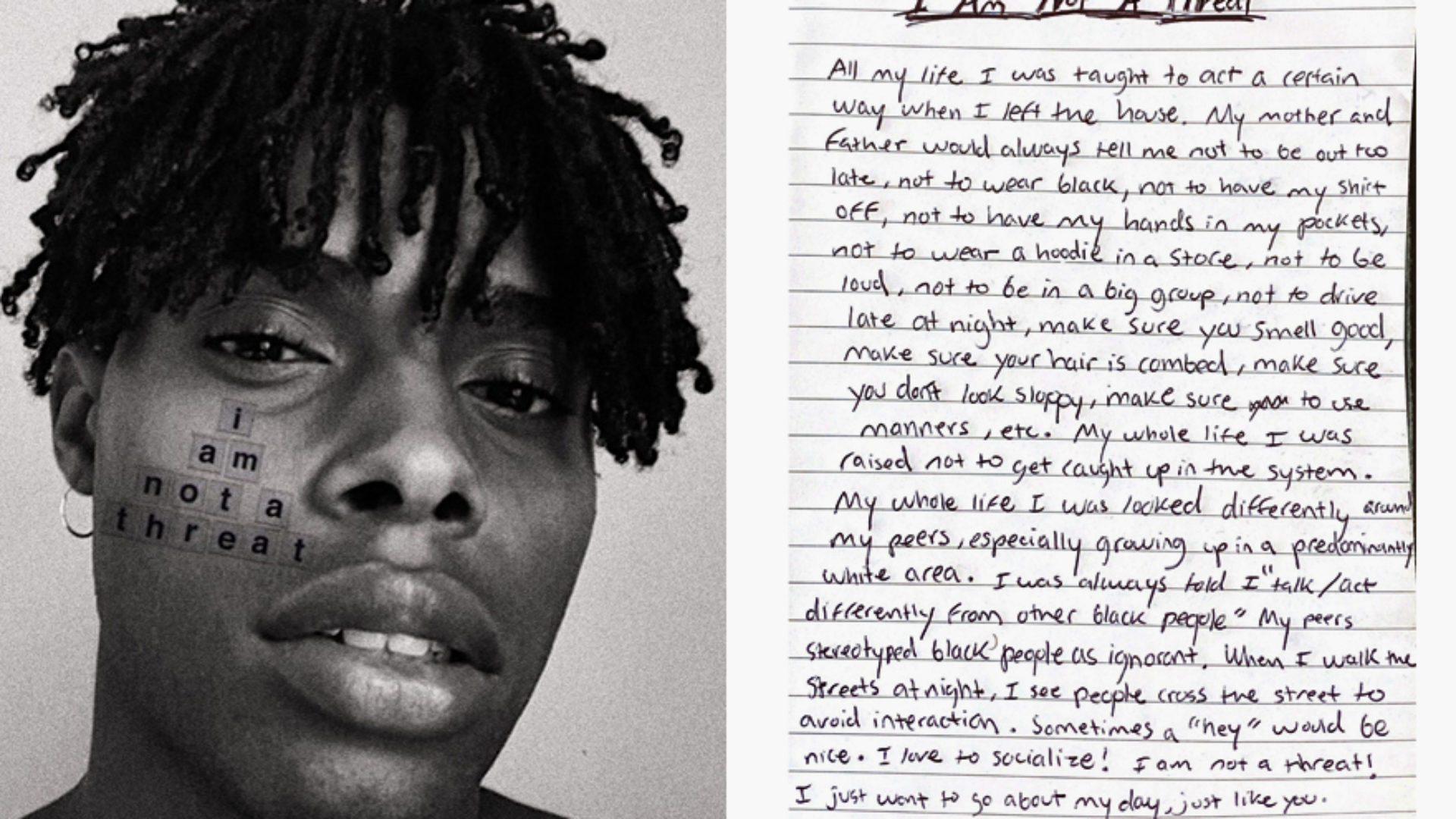
“I am not a threat. All my life I was taught to act a certain way when I left the house. My mother and father would always tell me not to be out too late, not to wear black, not to have my shirt off, not to have my hands in my pockets, not to wear a hoodie in a store, not to be loud, not to be in a big group, not to drive late at night, make sure [I] smell good, make sure [my] hair is combed, make sure [I] don’t look sloppy, make sure to use manners, etc.
My whole life I was raised not to get caught up in the system. My whole life I was looked at differently around my peers, especially growing up in a predominantly white area. I was always told I ‘talk/act differently from other black people.” My peers stereotyped Black people as ignorant.
When I walk the streets at night, I see people cross the street to avoid interaction. Sometimes a ‘hey’ would be nice. I love to socialize! I am not a threat! I just want to go about my day, just like you.” —Dimitry
Fabe
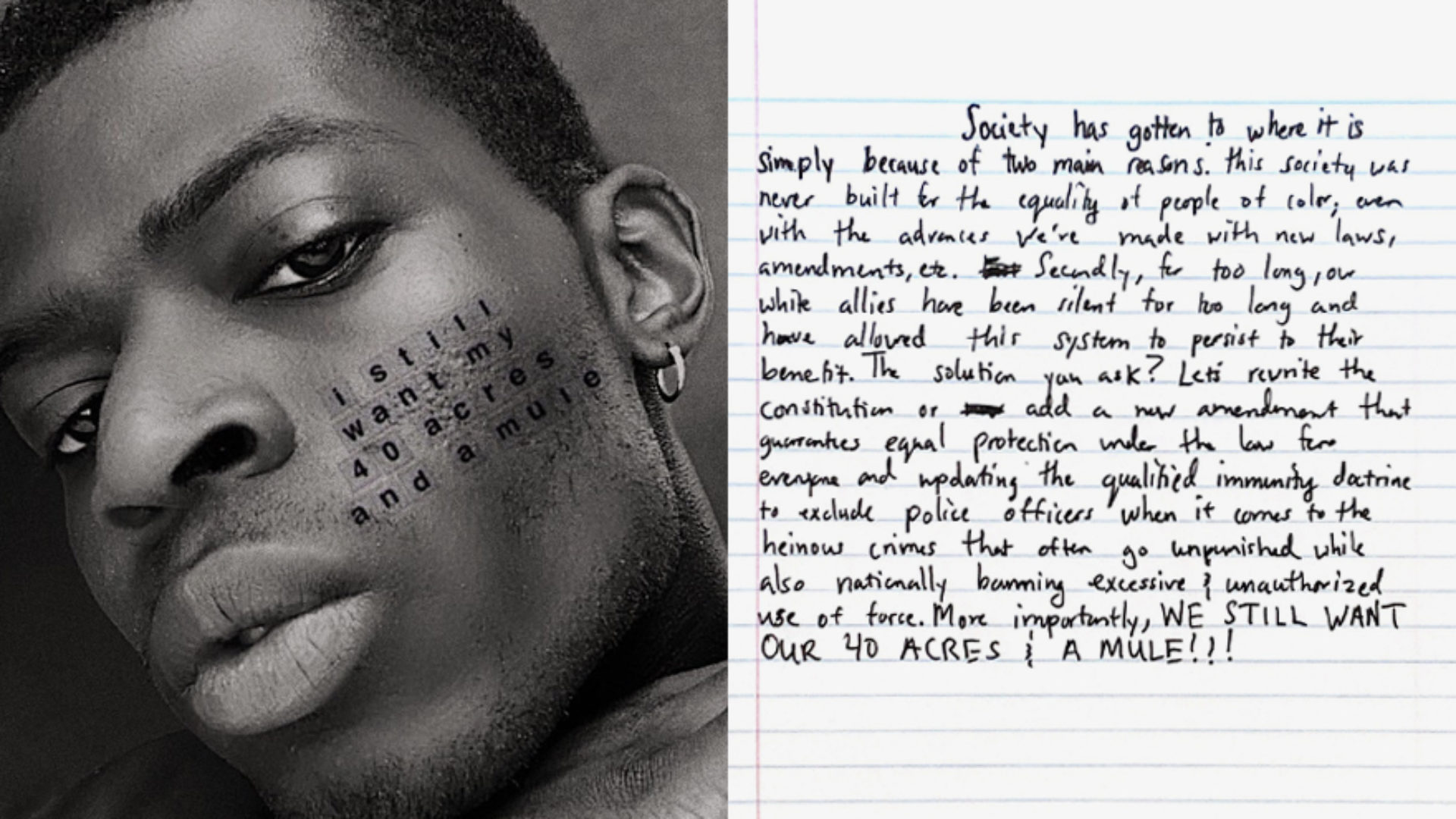
“Society has gotten to where it is simply because of two main reasons. [T]his society was never built for the equality of POC, even with the advances we’ve made with new laws, amendments, etc. [B]ut also, for too long, our white allies have been silent and allowed this system to persist to their benefit.
The solution you ask? Let’s rewrite the constitution or add a new amendment that guarantees equal protection under the law for everyone. [Let’s] update the qualified immunity to exclude police officers when it comes to heinous crimes that often go unpunished and excessive and unauthorized use of force.
More importantly, WE STILL WANT OUR 40 ACRES AND A MULE.” —Fabe
Henry
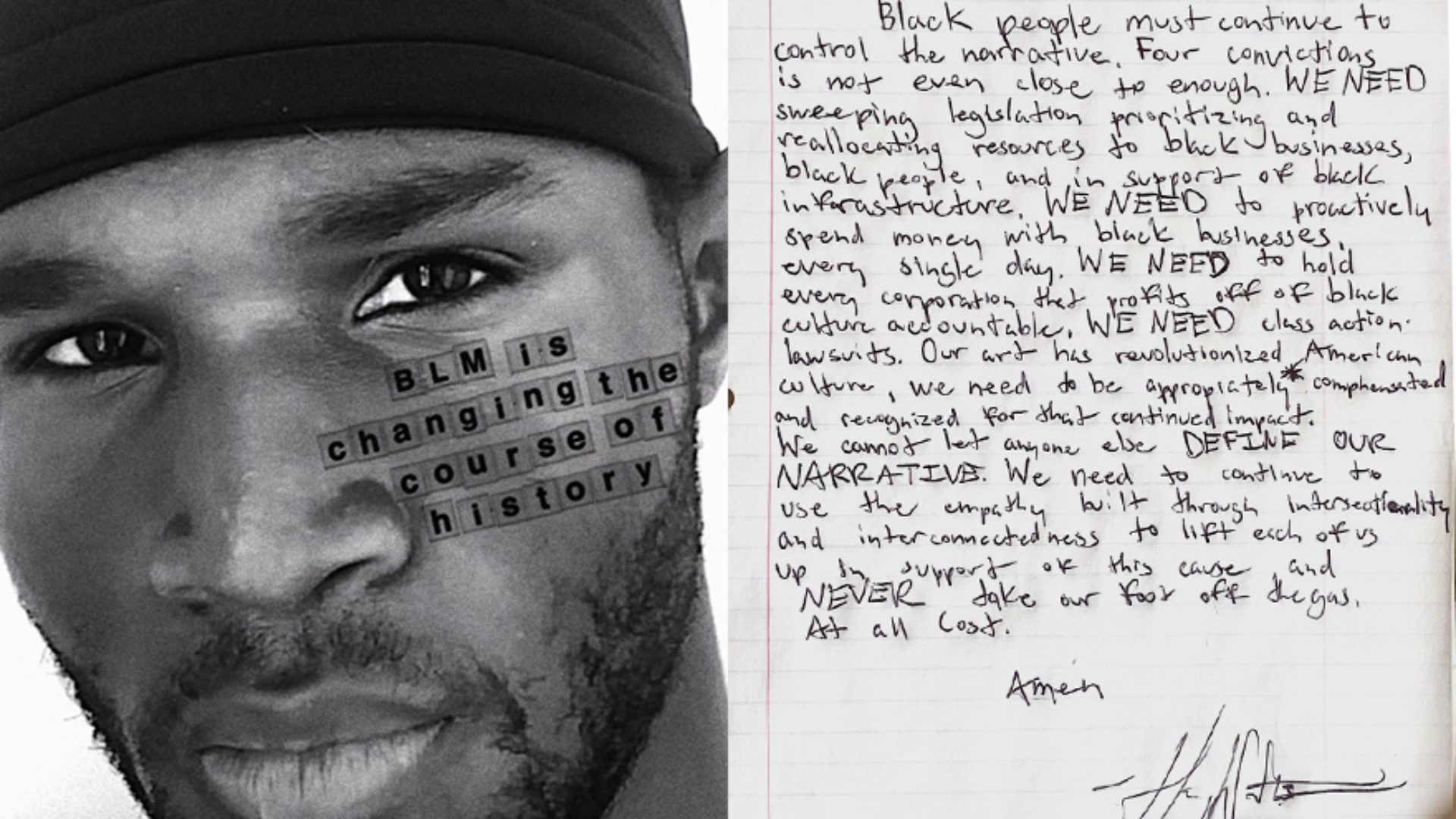
“Black people must continue to control the narrative…We need sweeping legislation prioritizing and reallocating resources to Black businesses, Black people, and in support of Black infrastructure. We need to proactively spend money with Black businesses, every single day. We need to hold every corporation that profits off of Black culture accountable. We need class action lawsuits. Our art has revolutionized American culture, we need to be appropriately compensated and recognized for that continued impact. We cannot let anyone else define our narrative. We need to continue to use the empathy built through intersectionality and interconnectedness to lift each of us up in support of this cause and never take our foot off the gas. At all costs. Amen.” —Henry
Jeyźa
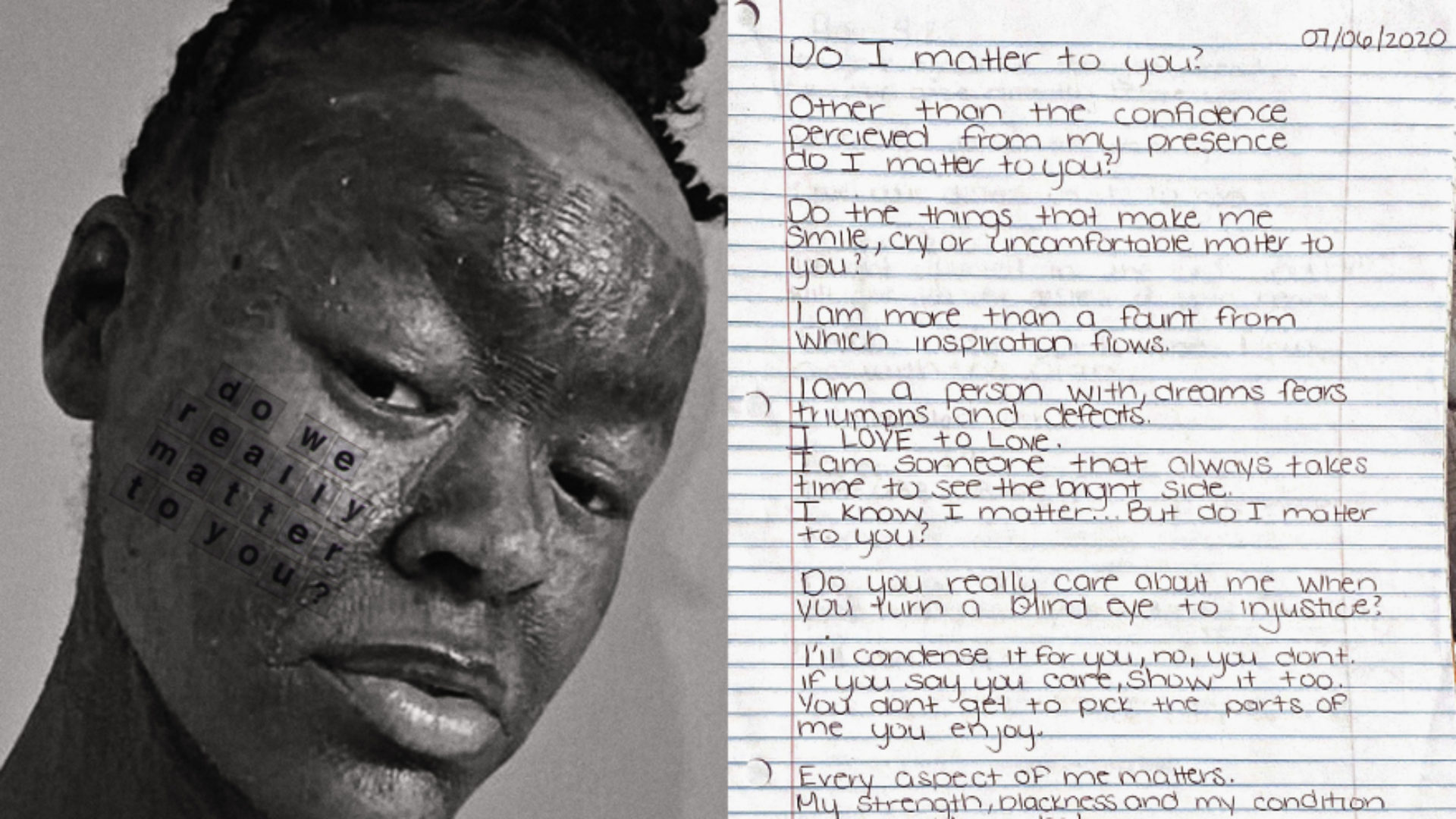
“Do I matter to you? Other than the confidence perceived from my presence, do I matter to you? Do the things that make me smile, cry or uncomfortable matter to you? I am more than a fount from which inspiration flows. I am a person with dreams, fears, triumphs, and defeats. I love to love. I am someone [who] always takes time to see the bright side. I know I matter…but do I matter to you? Do you really care about me when you turn a blind eye to injustice? I’ll condense it for you—no, you don’t. If you say you care, show it too. You don’t get to pick the parts of me you enjoy. Every aspect of me matters. My strength, Blackness and my condition are a package deal. If you can’t handle all of it, you don’t deserve me.” —Jeyźa
Kelly
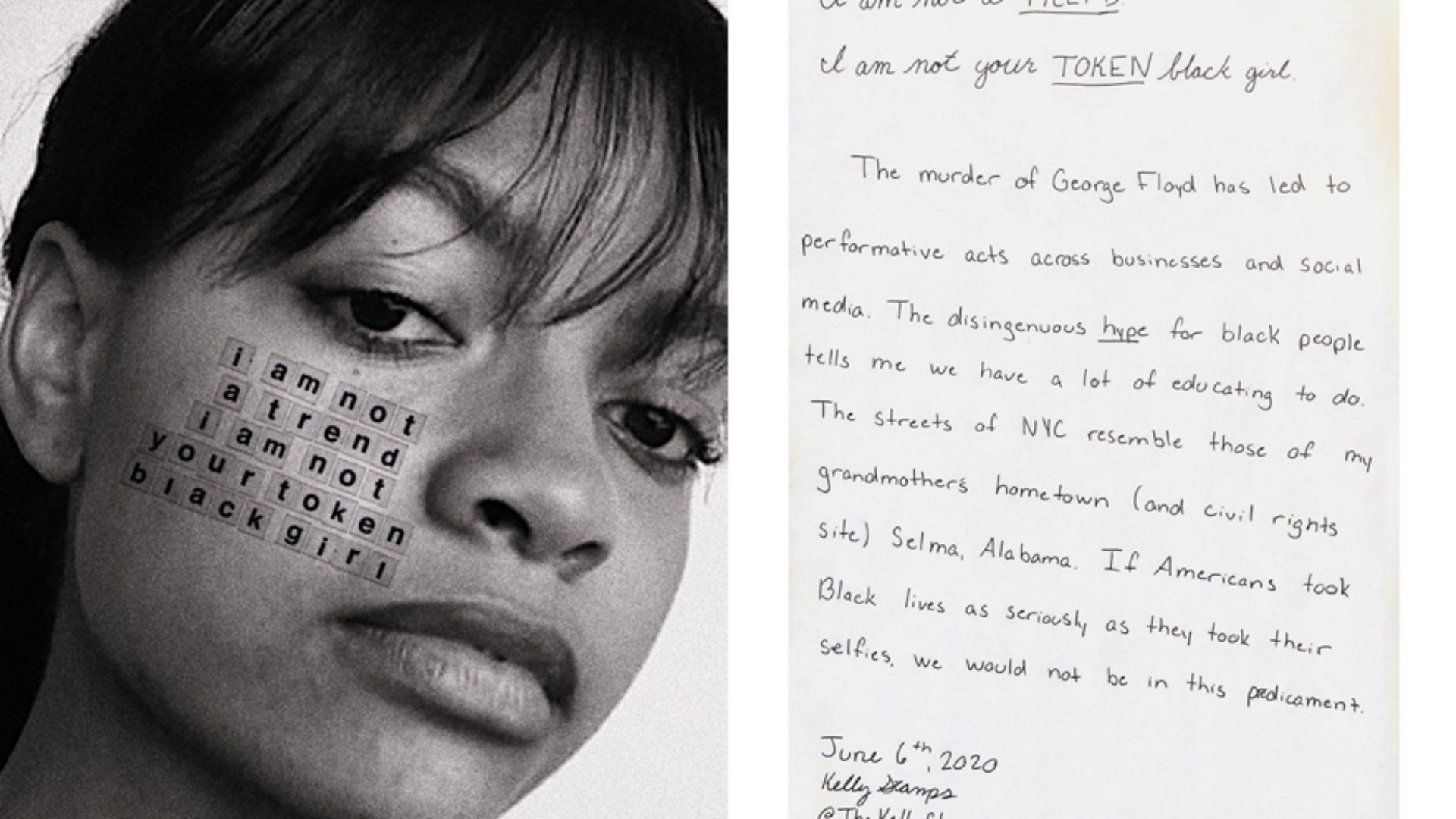
“I am not a trend. I am not your token Black girl. The murder of George Floyd has led to performative acts across businesses and social media. The disingenuous hype for Black people tells me we have a lot of educating to do. The streets of [New York City] resemble those of my grandmother’s hometown and civil rights site Selma, Alabama. If Americans took Black lives as seriously as they took their selfies, we would not be in this predicament.” —Kelly
Nikolas
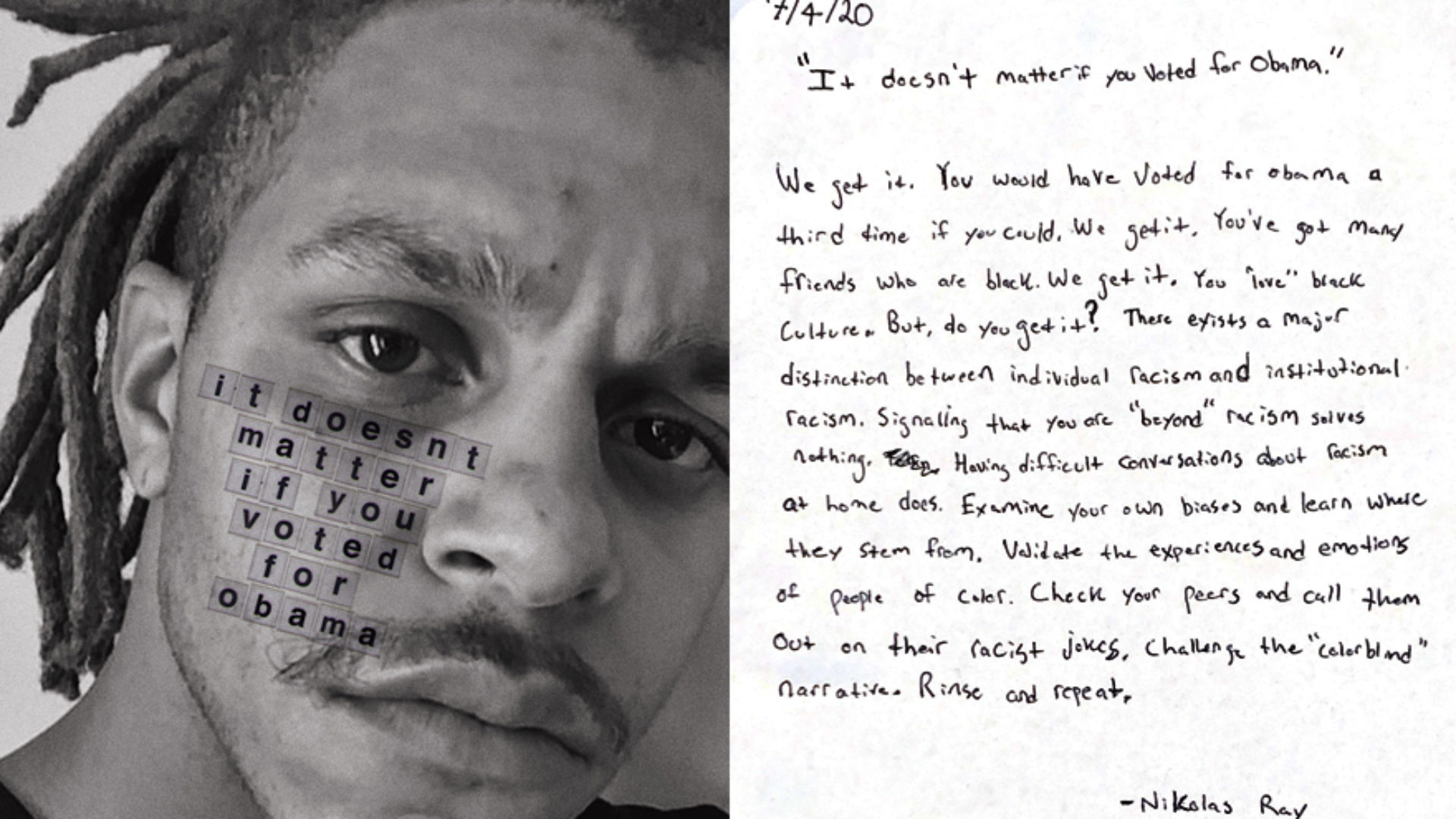
“It doesn’t matter if you voted for Obama. We get it. You would have voted for Obama a third time if you [could’ve.] We get it. You’ve got many friends who are Black. We get it. You “love” Black culture. But do you get it? There exists a major distinction between individual racism and institutional racism. Signaling that you are ‘beyond’ racism solves nothing. Having difficult conversations about racism at home does. Examine your own biases and learn where they stem from. Validate the experiences and emotions of people of color. Check your peers and call them out on their racist jokes, challenge the ‘colorblind’ narratives. Rinse and repeat.” —Nikolas
Yanii
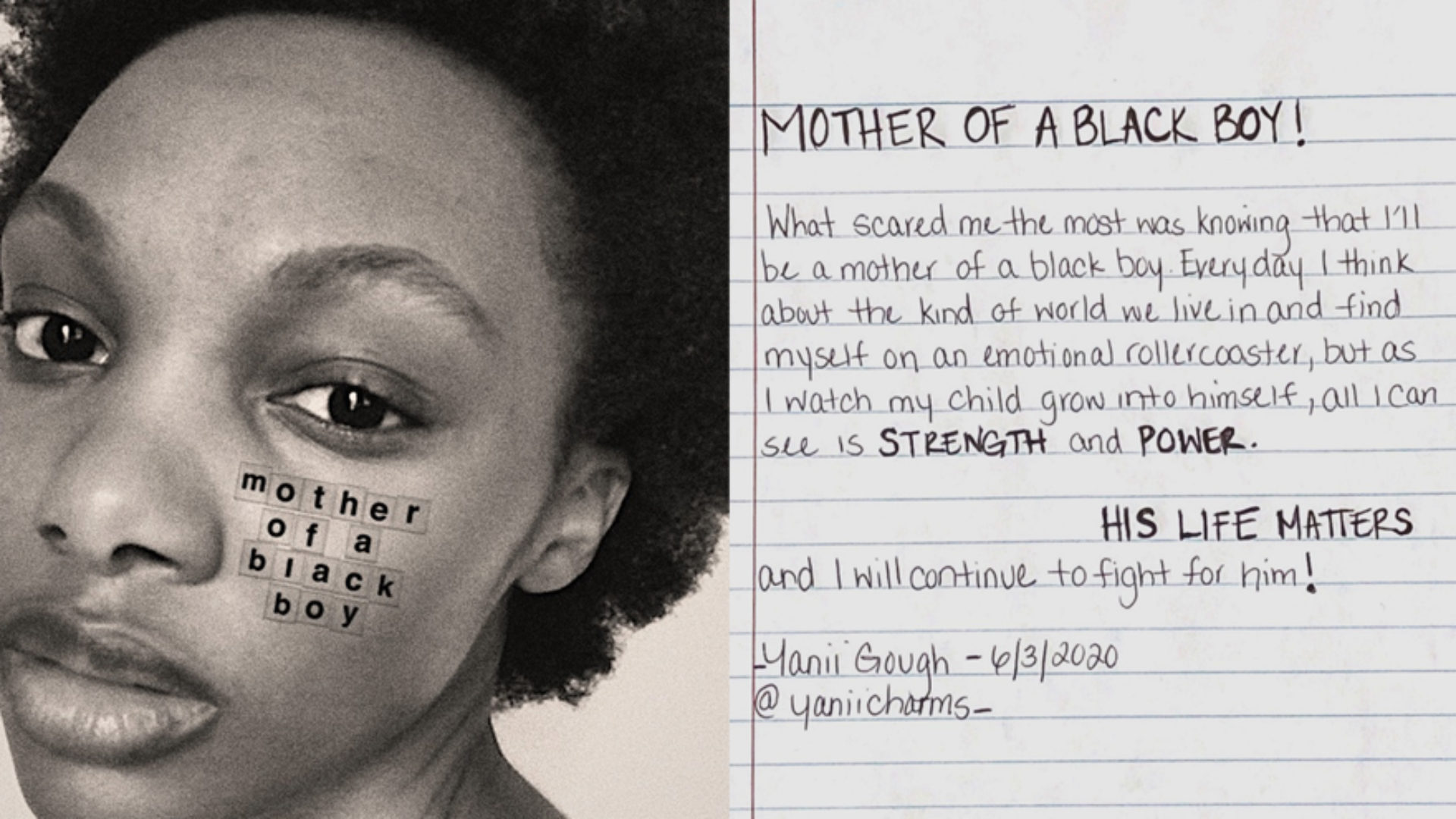
“What scared me the most was knowing that I’ll be a mother of a Black boy. Everyday I think about the kind of world we live in and find myself on an emotional rollercoaster, but as I watch my child grow into himself, all I can see is strength and power. His life matters and I will continue to fight for him!” —Yanii
Photo credit: Peter DeVito